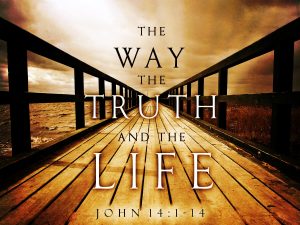Christians place much emphasis on the cross. Nearly everything we do, believe, proclaim, and depict revolves around the crucifixion. From our artwork to our evangelism, the cross is the focal point. Enter a church building or cathedral, you see the cross everywhere. Catholics use not only the cross, but depict Jesus still hanging on it. Why? Is Jesus’ crucifixion the prominent aspect of Christian faith? Is our relationship with God based on the cross? Is the cross the evidence of God’s mercy? Or is there something else?
Paul writes in his first letter to the Corinthian church a summary of the Gospel message (1 Cor 15:3-4):
- Jesus died for our sins, according to the Scriptures
- Jesus was buried
- Jesus was raised on the third day, according to the Scriptures
He then spends the next twenty verses (vv. 5-24) discussing the fact of Jesus’ physical resurrection and its importance. Following this, he spends the rest of the chapter (vv. 25-58) outlining the implications of Jesus’ resurrection. But for now, I want to focus on the importance of that blessed, miraculous, prophecy-fulfilling event.
Paul wrote,
13 But if there is no resurrection of the dead, then not even Christ has been raised. 14 And if Christ has not been raised, then our preaching is in vain and your faith is in vain. 15 We are even found to be misrepresenting God, because we testified about God that he raised Christ, whom he did not raise if it is true that the dead are not raised. 16 For if the dead are not raised, not even Christ has been raised. 17 And if Christ has not been raised, your faith is futile and you are still in your sins. 18 Then those also who have fallen asleep in Christ have perished. 19 If in this life only we have hoped in Christ, we are of all people most to be pitied.
— 1 Cor 15:13-19, ESV
It seems that while the cross satisfied God’s wrath, paid for sin, and brought atonement, it is the resurrection that is the pivotal event. If there was no resurrection, then Jesus was just another guy who died on a cross, and he remains dead today. If there was no resurrection, then Scripture lied when the Old Testament said Messiah would be raised and when the New Testament recorded that he did. If there was no resurrection, then Christians believe in a false doctrine, a false Messiah, and a false God. If there was no resurrection, then, as Paul said, “we are of all people most to be pitied.”
Immediately following Jesus’ raising Lazarus, John records that the Pharisees and entire Jewish High Council “from that day on they made plans to put him [Jesus] to death” (John 11:53, ESV). What was it that angered and threatened them so? Was it the fact that Jesus could perform miracles? They had seen many, yet didn’t plan to kill him. Was it something about Lazarus? Maybe he was a personal threat or enemy to Caiaphas, the High Priest? Not likely, since he was the brother of Mary and Martha, a poor family from Bethany. The resurrection was the catalyst. The fact that Jesus brought someone back to life was the threat.
Furthermore, people flocked to see Lazarus, and by his testimony many were following the Galilean preacher, Jesus. So, according to John, the Pharisees and High Council decided that they needed not only to kill Jesus, who raises the dead, but also kill Lazarus (John 12:10). They could not leave any evidence of the resurrection because it was a threat to their power and authority (cf. John 11:48).
Following Jesus’ crucifixion, the Priests went to Pilate and asked for an additional favor (he had already given them Jesus’ death):
62 Next day, that is, after the day of Preparation, the chief priests and the Pharisees gathered before Pilate 63 and said, “Sir, we remember how that impostor said, while he was still alive, ‘After three days I will rise.’ 64 Therefore order the tomb to be made secure until the third day, lest his disciples go and steal him away and tell the people, ‘He has risen from the dead,’ and the last fraud will be worse than the first.” 65 Pilate said to them, “You have a guard of soldiers. Go, make it as secure as you can.” 66 So they went and made the tomb secure by sealing the stone and setting a guard.
— Matt 27:62-66, ESV
As with Lazarus, the Pharisees feared Jesus’ resurrection; even the appearance or rumor of it was dangerous. In order to pacify the Jewish Priests, and maybe even try to get them out of his hair, Pilate sent a military guard unit and had the stone (which itself was very heavy) sealed. They feared the resurrection, because, in their words, “the last fraud [the resurrection] will be worse than the first [Jesus’ claim to be Messiah and God].”
So today, Christians preach the cross, decorate with the cross, sing about the cross, wear crosses, and historically built cathedrals in the shape of the cross. Christianity has made the cross the central event, yet even the non-believing Jewish leadership—to whom Jesus said, “you know neither the Scriptures nor the power of God” (Matt 22:29, ESV)—understood the centrality and importance of even the rumor of the resurrection.
Returning to Paul’s letter to the Corinthian church, it is clear that he understood that while the cross is critical, the resurrection is paramount. Without the resurrection, the cross is meaningless. Without the resurrection, our faith is in vain. Without the resurrection, God is a liar. Without the resurrection, Jesus was a fraud. Without the resurrection, Christians are to be pitied. Without the resurrection, Christianity is a farse.
This does not mean that the resurrection is greater than the cross. Rather, it means that the two—Calvary and the resurrection—are inseparable. We cannot have one without the other. The former (Calvary) brings atonement, satisfies God’s wrath, brings about forgiveness, and wipes away a believer’s sin. The latter (resurrection) brings eternal life, exalts Jesus, points to our future resurrection, depicts God’s glorious sovereignty, and assures us that believers will spend eternity with God in his glory, praising, worshipping, and delighting in him forever!














